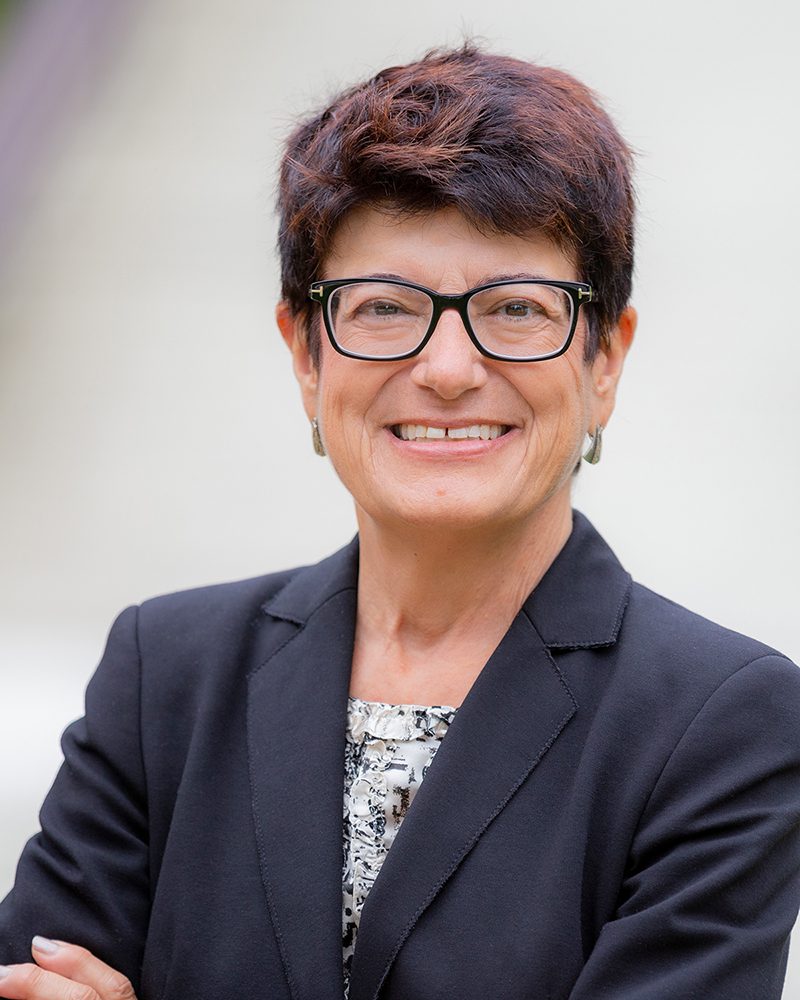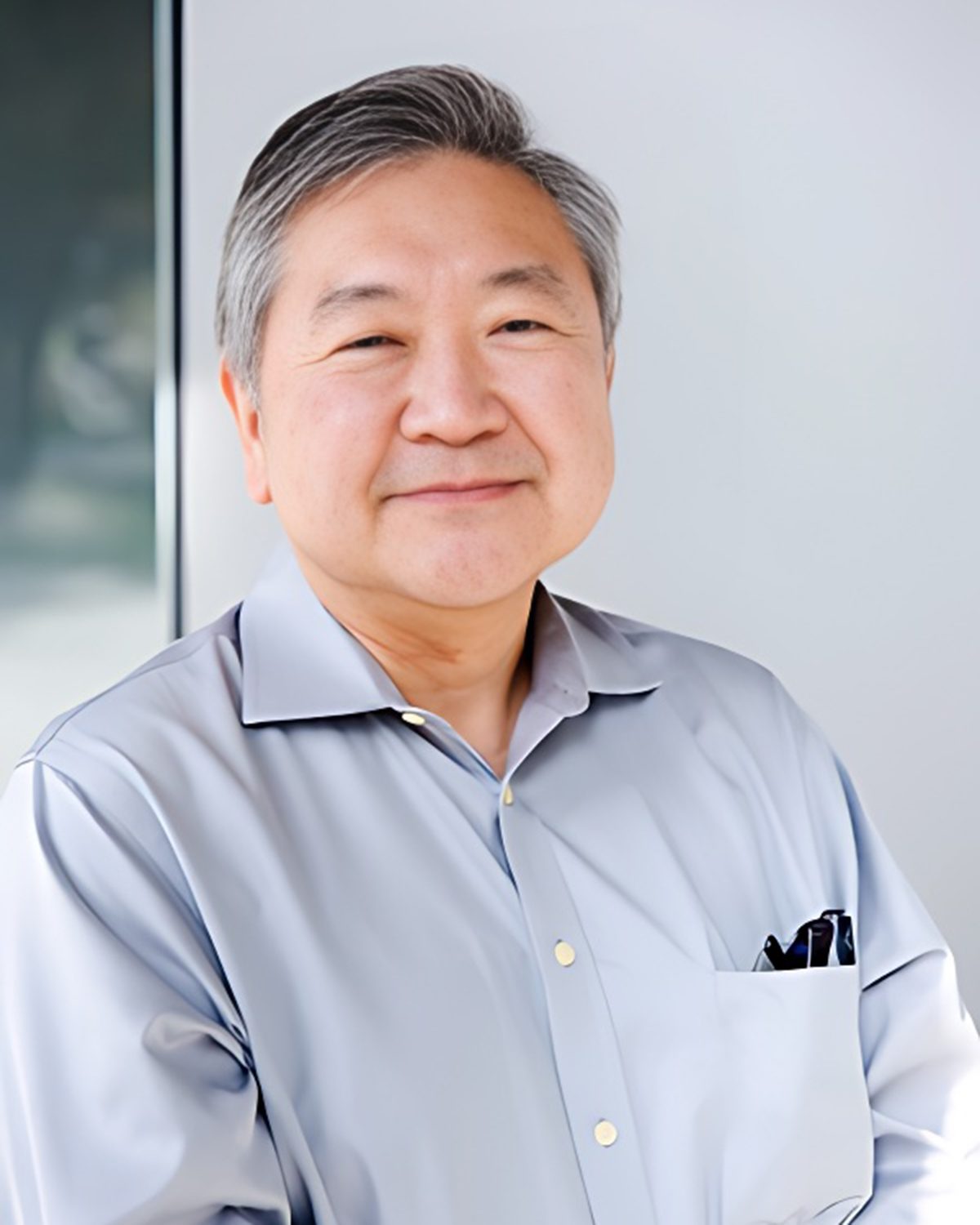The American Association for the Advancement of Science recognizes the achievements of faculty members in the fields of radiology and public health
By Hope Hamashige

Carolyn C Meltzer, MD – Dean of the Keck School of Medicine of USC – May S. and John H. Hooval, M.D., Dean’s Chair – Professor of Radiology (Photo: Richard Carrasco)
Dean Carolyn Meltzer, MD, and Richard M. Watanabe, PhD, professor of population and public health sciences and physiology and neuroscience, have been recognized as Fellows of the American Association for the Advancement of Science (AAAS), the world’s largest general scientific society and publisher of the Science family of journals.
Meltzer and Watanabe are among 508 scientists, engineers and innovators who were elected by the AAAS Council for their notable achievements in their respective fields, from millions of individuals the society serves around the world.
“Being named an AAAS Fellow is an enormous honor and both Drs. Meltzer and Watanabe are very deserving of this recognition,” said Steven D. Shapiro, MD, senior vice president for health affairs at USC. “They both are deeply committed to improving the practice of medicine through their research and to encouraging more bright, young, and diverse people to pursue careers in science.”
Dean Meltzer is an expert in neuroradiology and nuclear medicine whose research has improved the understanding of the brain’s structure and function during normal aging, dementia, Alzheimer’s disease and psychiatric disorders in later life.
Meltzer has received numerous awards and honors for her work, including the distinguished service award from the American Medical Association, the gold medal award from the Association of University Radiologists and the outstanding research award and gold medal from the American Society of Neuroradiology. She is also a fellow of the American College of Radiology and the American College of Neuropsychopharmacology and a past president of the Academy for Radiology and Biomedical Imaging Research.
“I am deeply honored to join the ranks of investigators recognized by the AAAS, and particularly delighted to receive this distinction alongside my distinguished colleague, Dr. Watanabe.”

Richard M. Watanabe, MD, Associate Dean for Health and Population Science Programs (Photo: Carolyn Barnes)
Watanabe’s research focuses on the abnormal physiological processes and genetics of type 2 diabetes and obesity. Over the course of his career, Watanabe has developed mathematical models to quantify insulin secretion in living organisms. In the area of complex disease genetics, he also employs novel strategies to identify genetic alterations that make people more susceptible to developing type 2 diabetes and diabetes-related traits and understanding the genes and gene expression and how they are impacted by environmental exposures. Watanabe is also the medical school’s Associate Dean for Health and Population Science Programs.
“It is an honor to be recognized by the AAAS and to join the ranks of those who were previously named fellows. The accomplishments for which I am being recognized would not have been possible without the support of my mentors, research team, and numerous colleagues. This honor is equally theirs as it is mine.”
AAAS Fellows are chosen for their notable accomplishments in research, technology, industry and government, teaching, communication and interpreting science to the public. The tradition of electing AAAS Fellows began in 1874. Since then, the honor has been bestowed on thousands of distinguished scientists, including inventor Thomas Edison, sociologist W.E.B. DuBois, anthropologist Margaret Mead, computer scientist Grace Hopper, physicist Steven Chu and astronaut Ellen Ochoa.
Efforts to improve access to and understanding of science are also important considerations in electing AAAS Fellows.
At Emory University, where Meltzer headed the Department of Radiology and Imaging Sciences prior to being named dean of the Keck School of Medicine of USC, she launched a training program to give mid-career health professionals the tools they need to advance in their field, notably women and people from underrepresented backgrounds. When she discovered pay inequities in the radiology department, she established new salary guidelines that eliminated the pay gap between men and women.
Watanabe has worked to improve student diversity at the Keck School of Medicine through his co-leadership of the NIH/NIDDK-funded Summer Program In Diabetes and Obesity Research (SPIDOR) and participation in the USC Bridging the Gaps summer program and the NIH/NHLBI-funded LA’s Biostatistical Education Summer Training program.
AAAS was founded in 1848 and includes more than 250 affiliated societies and academies of science, serving 10 million individuals. The nonprofit is open to all and fulfills its mission to advance science and serve society through initiatives in science policy, international programs, science education, public engagement and more.